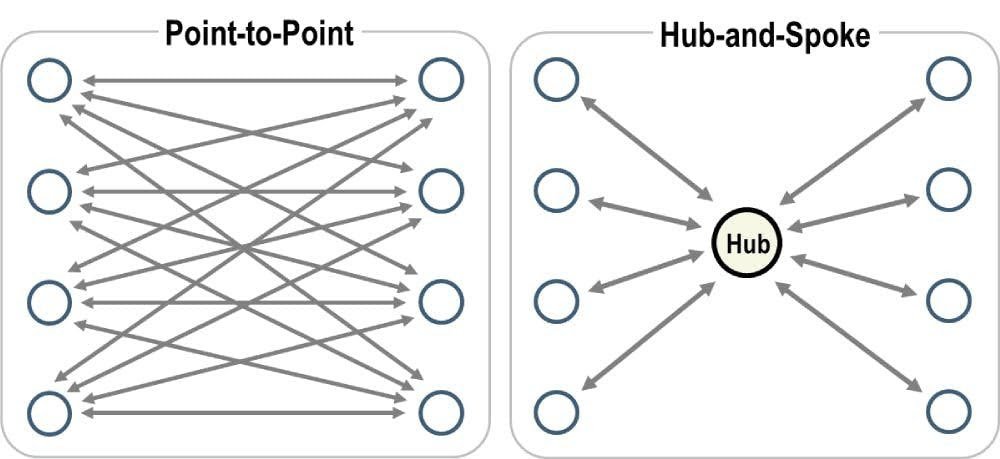Reminder - Why Are Some US Airlines Still Experiencing So Many Problems?!
This story and the next will focus on the chaos in the skies at present. They will discuss one reasonably easy strategy for booking your travel and also why is it a good case study for the fact that higher than expected inflation may be here to stay.
As you probably saw, on Wednesday morning many weary travelers woke up to find that the Federal Aviation Authority had grounded all US domestic flights.
Yes, you read that right, all of them.
The reason was due to a computer outrage and while it was quickly fixed, by then of course, the damage was done. By the afternoon, Flight Aware was tracking over 7,800 flights delayed and over 1,200 canceled.
Grim.
This SNAFU comes on the heels of an already brutal holiday period for travelers. Unfortunately bad weather created the standard holiday chaos but then, less typically, this crisis lead to a spiraling set of problems whereby certain airlines struggled to resume normal operations for days afterwards.
In particular, Southwest Airlines, one of America's largest and longest running so-called "budget airlines" had a terrible few holiday weeks canceling thousands of flights day-after-day, stranding tens of thousands and leading to a very brand damaging episode for the company.
These problems haven't gone away either. Far from it, in fact. We couldn't help but notice that Southwest was leading the way in terms of percent of flights delayed and canceled (over half) as well, according to Flight Aware.
This suggests a broader point that others have made which is that these problems are not a one off and are systemic.
We wanted to highlight all of this for two reasons:
The first was just to repeat a message we have made before: be very careful with the type of airline you select.
Next we would like to outline how, in many ways, this cautionary tale encapsulates how the new fashion for "resilience" over "efficiency" will mean that, while inflation may moderate further, it will ultimately remain higher than expected in the months and years ahead.
First, on airline selection. A long story made short is that you should be very careful when selecting airlines not just because some are "better" or safer or more or less costly than others but that they organized and structured very differently.
In particular you should be aware that when problems strike - like bad weather over a very busy holiday period, for instance - some airlines are able to adjust far easier than others. In particular, many budget airlines operate something called a "Point-to-Point" system that makes them cheaper to operate but also more vulnerable to both delays and disruptions when inevitable problems strike.
The reason is pretty simple: the problems spiral very quickly through the entire airline network. Their structure magnifies rather than limit the disruption.
We have written about this theme here and here but our newsletter has more than doubled since then and we likely should have reflagged it heading into another busy and wintry holiday period.
Here is a rough diagram we put together to illustrate the overall argument of point-to-point vs Hub-and-Spoke airlines.
As we wrote in 2021, the statistics support the idea that the likes of JetBlue (or Southwest etc.) that operate these types of point-to-point networks are nearly always less reliable no matter whether there are storms, software glitches or something else besides.
Updating our 2021 numbers for 2022 (using, once again, FlightAware data), they reveal that the problem has only worsened since last year.
Point-to-point flights are now roughly 14-16% worse (depending on whether the flights are hub or spoke) of the time in terms of delayed above their hub-and-spoke counterparts like Delta or United.
This probability still rises by nearly a factor of 2 when you filter by airline. Hint: No one wanted to be on a Spirit or Allegiant or yes, Southwest jet over the holidays.
When you fly a "budget" airline you are nearly always flying a point-to-point airline and it does not take much for that experience to turn south in a hurry.
Add it all up and heading to the airport - Christmas or not! - you might have as much as a 30% chance of a delayed flight. Up to you of course but where we come from, that is not a probability we would rush to voluntarily embrace.
So, please be aware when you are booking your next voyage. There may indeed be cost savings or a more convenient route but what you save in money you may lose in time, sanity or misplaced baggage.
Now, let us turn to one of the broader implications of the problems with air travel and Southwest, in particular.
*******
Have questions? Care to find out more? Feel free to reach out at contact@pebble.finance or join our Slack community to meet more like-minded individuals and see what we are talking about today. All are welcome.

